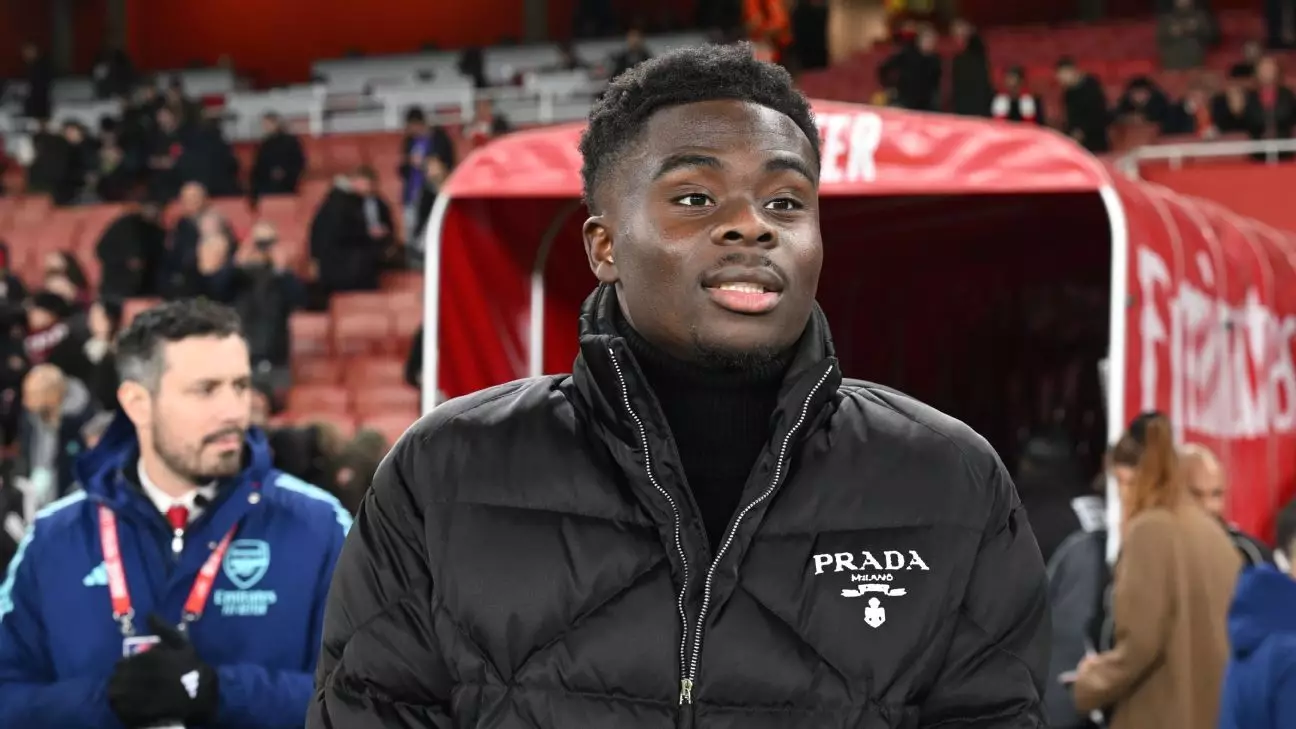In the fast-paced and demanding world of football, the importance of mental and physical health cannot be overstated. Arsenal’s head coach, Mikel Arteta, has recently emphasized this with the case of young star Bukayo Saka, who is facing an extended period on the sidelines due to a hamstring injury. Following a successful yet physically taxing 5-1 victory against Crystal Palace, Saka’s injury required surgery, sidelining him until March. Arteta’s reminders for Saka to take time away reflect not only a focus on rehabilitation but also an acknowledgment of the player’s well-being beyond the pitch.
Arteta’s assertion that Saka should prioritize a short retreat—from the grind of daily training and games—highlights the reality that athletes need comprehensive care that extends beyond physical treatment. While Saka will continue with his rehabilitation, Arteta’s advice serves as a powerful reminder that mental clarity is equally vital for athletes. By suggesting that Saka spend time with loved ones or take a solitary break, Arteta is advocating for a holistic approach to recovery. This space for mental refreshment can provide the emotional restoration needed to face the rigors of professional sports with renewed vigor.
The Broader Impact on Arsenal
Saka’s injury comes at a pivotal time for Arsenal, and his absence has certainly been felt. The team has stumbled at crucial junctures, unable to find their footing following a Third Round exit from the FA Cup, and showing vulnerability in their ongoing Carabao Cup encounter against Newcastle United. Arteta’s comments reflect the recognition that Saka’s contributions are indispensable to the team’s dynamics. However, it’s crucial to understand that he is not alone in suffering; teammate Gabriel Jesus is also recovering from an ACL injury, with defenders Takehiro Tomiyasu and Ben White grappling with their own knee issues. This cumulative impact has undoubtedly strained the team’s lineup.
While the immediate concern for Saka is getting back to match fitness, Arteta’s proactive guidance may have longer-term implications for how the club manages player welfare. It suggests a shift towards prioritizing players’ mental health, which has often been overlooked in the high-pressure environment of professional sport. Saka’s recovery may be a critical turning point, not just for his career, but for how Arsenal evolves its approach to athlete management.
As the Gunners navigate through this challenging period, the importance of a supportive infrastructure for player well-being will be tested. Mikel Arteta’s insistence on taking time away signifies a deeper understanding of the intricate web of physical and psychological health. This may prove to be essential not only for Saka’s successful return but for the resilience of the entire squad moving forward. Ultimately, how Arsenal addresses these challenges will shape their fortunes in upcoming matches, as well as set a precedent for how injuries and player recovery are handled within professional football.

